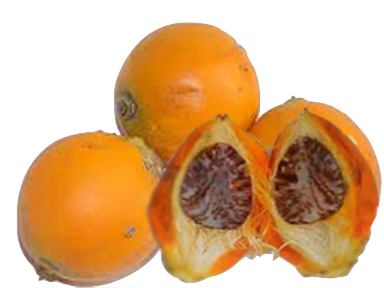"Like a halved Pinang" is an expression in my native language to compare the appearance of two persons who are alike/very similar/like a twin.
What is the equal English expression for Like a halved Pinang?
Note: Thanks for your responses. I should really be careful to use the expressions suggested that fit my native culture. For instance:
doppleganger, I think I can't equally use it as the translation of a halved Pinang.
cut from the same cloth doesn't ring the bell either, because my native expression refers to a case that may include non-relative persons, although it is usually applied for a twin.
long-lost brother/sister/sibling/twin, I sense that it explains the situation that you haven't met someone for a long time.
Anymore input please? :)
Pics of Pinang:



Doppelganger, and a co-worker replied that it looked like a "long-lost son" of mine. Interesting.